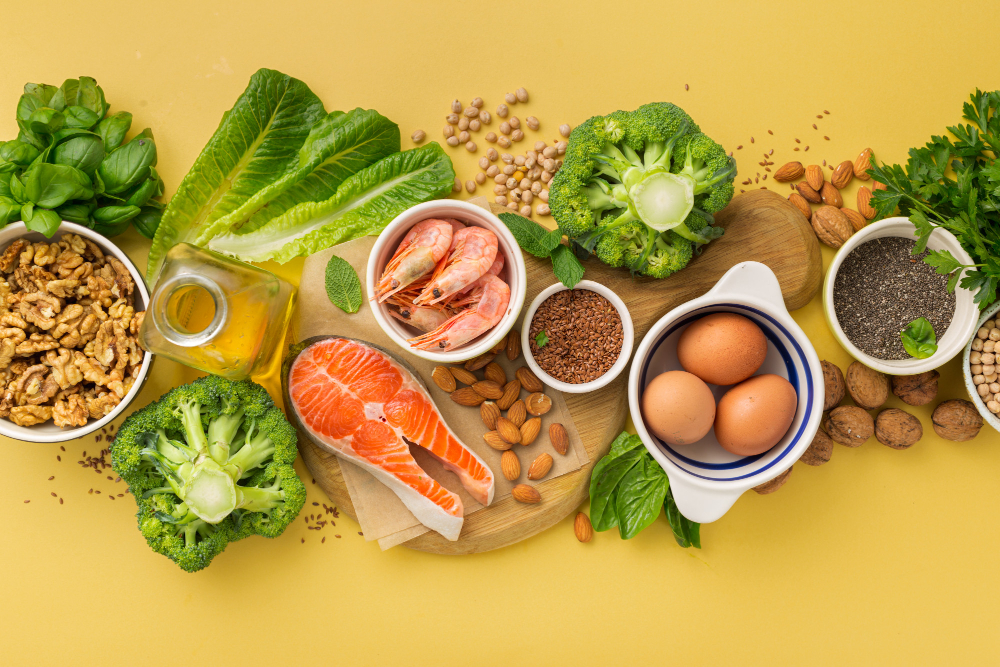本翻譯僅作學術交流用,無商業意圖,請勿轉載,如有疑議問請來信
最新荟萃分析發現,低碳水化合物飲食最初會降低總能量消耗(TEE),但在約2.5週後會有顯著增加。這項研究重新分析了29項受控進食研究,涉及617名參與者,指出長期試驗對了解碳水化合物攝入量與能量消耗之間的關系至關重要。

「降低碳水化合物飲食是否增加總能量消耗?對29項受控進食研究的更新和重新分析的荟萃分析」
Do Lower-Carbohydrate Diets Increase Total Energy Expenditure? An Updated and Reanalyzed Meta-Analysis of 29 Controlled-Feeding Studies
Ludwig DS, Dickinson SL, Henschel B, Ebbeling CB, Allison DB. Do Lower-Carbohydrate Diets Increase Total Energy Expenditure? An Updated and Reanalyzed Meta-Analysis of 29 Controlled-Feeding Studies. J Nutr. 2021 Mar 11;151(3):482-490. doi: 10.1093/jn/nxaa350. PMID: 33274750; PMCID: PMC7948201.
https://pubmed.ncbi.nlm.nih.gov/33274750/
Abstract
Background
The effect of macronutrient composition on total energy expenditure (TEE) remains controversial, with divergent findings among studies. One source of heterogeneity may be study duration, as physiological adaptation to lower carbohydrate intake may require 2 to 3 wk.
Objective
We tested the hypothesis that the effects of carbohydrate [expressed as % of energy intake (EI)] on TEE vary with time.
Methods
The sample included trials from a previous meta-analysis and new trials identified in a PubMed search through 9 March 2020 comparing lower- and higher-carbohydrate diets, controlled for EI or body weight. Three reviewers independently extracted data and reconciled discrepancies. Effects on TEE were pooled using inverse-variance-weighted meta-analysis, with between-study heterogeneity assessed using the I2 statistic. Meta-regression was used to quantify the influence of study duration, dichotomized at 2.5 wk.
Results
The 29 trials ranged in duration from 1 to 140 d (median: 4 d) and included 617 participants. Difference in carbohydrate between intervention arms ranged from 8% to 77% EI (median: 30%). Compared with reported findings in the prior analysis (I2 = 32.2%), we found greater heterogeneity (I2 = 90.9% in the reanalysis, 81.6% in the updated analysis). Study duration modified the diet effect on TEE (P < 0.001). Among 23 shorter trials, TEE was reduced on lower-carbohydrate diets (-50.0 kcal/d; 95% CI: -77.4, -22.6 kcal/d) with substantial heterogeneity (I2 = 69.8). Among 6 longer trials, TEE was increased on low-carbohydrate diets (135.4 kcal/d; 95% CI: 72.0, 198.7 kcal/d) with low heterogeneity (I2 = 26.4). Expressed per 10% decrease in carbohydrate as %EI, the TEE effects in shorter and longer trials were -14.5 kcal/d and 50.4 kcal/d, respectively. Findings were materially unchanged in sensitivity analyses.
Conclusions
Lower-carbohydrate diets transiently reduce TEE, with a larger increase after ∼2.5 wk. These findings highlight the importance of longer trials to understand chronic macronutrient effects and suggest a mechanism whereby lower-carbohydrate diets may facilitate weight loss.
Keywords
carbohydrate-insulin model; dietary carbohydrate; dietary fat; energy expenditure; feeding study; low-carbohydrate diet; metabolism; obesity.
摘要
背景
碳水化合物組成對總能量消耗(TEE)的影響仍存在爭議,各項研究結果不一。可能造成異質性的一個原因是研究持續時間,因為對較低碳水化合物攝入的生理適應可能需要2到3週。
目標
我們檢驗了碳水化合物[以能量攝入(EI)的百分比表示]對TEE的影響是否隨時間變化的假設。
方法
樣本包括了先前荟萃分析的試驗和通過2020年3月9日的PubMed搜索確定的新試驗,這些試驗比較了低碳水化合物飲食和高碳水化合物飲食,並進行了EI或體重控制。三名審稿人獨立提取數據並調解了爭議。使用反變異權重荟萃分析將TEE的影響汇总,使用I2統計量評估研究間的異質性。使用荟萃回歸分析來量化研究持續時間的影響,分為2.5週。
結果
這29個試驗的持續時間從1到140天不等(中位數:4天),共包括617名參與者。介入組之間的碳水化合物差異範圍從8%到77%的EI(中位數:30%)。與先前分析中的報告結果相比(I2 = 32.2%),我們發現有更大的異質性(重新分析中的I2 = 90.9%,更新分析中的I2 = 81.6%)。研究持續時間修改了飲食對TEE的影響(P <0.001)。在23個較短的試驗中,低碳水化合物飲食降低了TEE(-50.0千卡/天;95%CI:-77.4,-22.6千卡/天),異質性很大(I2 = 69.8)。在6個較長的試驗中,低碳水化合物飲食增加了TEE(135.4千卡/天;95%CI:72.0,198.7千卡/天),異質性較低(I2 = 26.4)。以每降低10%的碳水化合物百分比EI表示,較短和較長試驗中的TEE效應分別為-14.5千卡/天和50.4千卡/天。敏感性分析中的結果基本保持不變。
結論
低碳水化合物飲食會暫時降低TEE,在約2.5週後會出現較大的增加。這些發現強調了長期試驗以了解慢性營養素效應的重要性,並提出了低碳水化合物飲食可能促進減重的機制。
關鍵詞
碳水化合物胰島素模型;膳食碳水化合物;膳食脂肪;能量消耗;餵養研究;低碳水化合物飲食;新陳代謝;肥胖。
圖1PRISMA流程圖,比較低碳水化合物和高碳水化合物飲食對總能量消耗的影響。PRISMA,系統評價和薈萃分析的首選報告項目。
圖2在比較低碳水化合物和高碳水化合物飲食的29項試驗中,總能量消耗效果的森林圖。試驗依照干預持續時間以升序排列(即最短時間在最上方)。個別試驗的完整引用可以在補充資料中找到。
參考資料
-
- Kang J, Ratamess NA, Faigenbaum AD, Bush JA. Ergogenic properties of ketogenic diets in normal-weig. ht individuals: a systematic review. J Am Coll Nutr. 2020;39:(7):665–75. – PubMed
-
- Shaw DM, Merien F, Braakhuis A, Maunder E, Dulson DK. Exogenous ketone supplementation and keto-adaptation for endurance performance: disentangling the effects of two distinct metabolic states. Sports Med. 2020;50(4):641–56. – PubMed
-
- Sherrier M, Li H. The impact of keto-adaptation on exercise performance and the role of metabolic-regulating cytokines. Am J Clin Nutr. 2019;110(3):562–73. – PubMed
-
- Hawley JA. Fat adaptation science: low-carbohydrate, high- fat diets to alter fuel utilization and promote training adaptation. Nestle Nutr Inst Workshop Ser. 2011;69:59–71. – PubMed
-
- Lundsgaard AM, Holm JB, Sjoberg KA, Bojsen-Moller KN, Myrmel LS, Fjaere E, Jensen BAH, Nicolaisen TS, Hingst JR, Hansen SL et al. Mechanisms preserving insulin action during high dietary fat intake. Cell Metab. 2019;29(1):50. – PubMed
-
- Yeo WK, Carey AL, Burke L, Spriet LL, Hawley JA. Fat adaptation in well-trained athletes: effects on cell metabolism. Appl Physiol Nutr Metab. 2011;36(1):12–22. – PubMed
-
- Owen OE, Caprio S, Reichard GA Jr, Mozzoli MA, Boden G, Owen RS. Ketosis of starvation: a revisit and new perspectives. Clin Endocrinol Metab. 1983;12(2):359–79. – PubMed
-
- Leino RL, Gerhart DZ, Duelli R, Enerson BE, Drewes LR. Diet-induced ketosis increases monocarboxylate transporter (MCT1) levels in rat brain. Neurochem Int. 2001;38(6):519–27. – PubMed
-
- Ciapaite J, van den Broek NM, Te Brinke H, Nicolay K, Jeneson JA, Houten SM, Prompers JJ. Differential effects of short- and long-term high-fat diet feeding on hepatic fatty acid metabolism in rats. Biochim Biophys Acta. 2011;1811(7–8):441–51. – PubMed
-
- Winzell MS, Magnusson C, Ahren B. Temporal and dietary fat content-dependent islet adaptation to high-fat feeding-induced glucose intolerance in mice. Metabolism. 2007;56(1):122–8. – PubMed
-
- Bortz WM, Wroldson A, Morris P, Issekutz B Jr. Fat, carbohydrate, salt, and weight loss. Am J Clin Nutr. 1967;20(10):1104–12. – PubMed
-
- Phinney SD, Bistrian BR, Wolfe RR, Blackburn GL. The human metabolic response to chronic ketosis without caloric restriction: physical and biochemical adaptation. Metabolism. 1983;32(8):757–68. – PubMed
-
- Vazquez JA, Adibi SA. Protein sparing during treatment of obesity: ketogenic versus nonketogenic very low calorie diet. Metabolism. 1992;41(4):406–14. – PubMed
-
- Horton TJ, Drougas H, Brachey A, Reed GW, Peters JC, Hill JO. Fat and carbohydrate overfeeding in humans: different effects on energy storage. Am J Clin Nutr. 1995;62(1):19–29. – PubMed
-
- Verboeket-van de Venne WP, Westerterp KR, ten Hoor F. Substrate utilization in man: effects of dietary fat and carbohydrate. Metabolism. 1994;43(2):152–6. – PubMed
-
- Verboeket-van de Venne WP, Westerterp KR. Effects of dietary fat and carbohydrate exchange on human energy metabolism. Appetite. 1996;26(3):287–300. – PubMed
-
- Shepard TY, Weil KM, Sharp TA, Grunwald GK, Bell ML, Hill JO, Eckel RH. Occasional physical inactivity combined with a high-fat diet may be important in the development and maintenance of obesity in human subjects. Am J Clin Nutr. 2001;73(4):703–8. – PubMed
-
- Eckel RH, Hernandez TL, Bell ML, Weil KM, Shepard TY, Grunwald GK, Sharp TA, Francis CC, Hill JO. Carbohydrate balance predicts weight and fat gain in adults. Am J Clin Nutr. 2006;83(4):803–8. – PubMed
-
- Rosenbaum M, Ravussin E, Matthews DE, Gilker C, Ferraro R, Heymsfield SB, Hirsch J, Leibel RL. A comparative study of different means of assessing long-term energy expenditure in humans. Am J Physiol. 1996;270(3 Pt 2):R496–504. – PubMed
-
- Higgins JPT, Li T, Deeks JJ. Choosing effect measures and computing estimates of effect. In: Higgins J, Thomas J, . Cochrane handbook for systematic reviews of interventions. London: Cochrane; 2019.
-
- Borenstein M, Hedges LV, Higgins JP, Rothstein HR. Introduction to meta-analysis. Hoboken (NJ): John Wiley & Sons; 2009.
-
- Cochran WG. The combination of estimates from different experiments. Biometrics. 1954;10(1):101–29.
-
- Stata meta-analysis reference manual, release 16. College Station (TX): StataCorp LLC; 2019; [Internet]. Available from: https://www.stata.com/manuals/meta.pdf.
-
- Harris R, Bradburn M, Deeks J, Harbord R, Altman D, Sterne J. metan: Fixed- and random-effects meta-analysis. Stata J. 2008;8(1):3–28.
-
- Raudenbush SW. Analyzing effect sizes: random-effects models. Cooper H, Hedges LV, Valentine JC, . New York: Russell Sage Foundation; 2009.
-
- Langan D, Higgins JPT, Jackson D, Bowden J, Veroniki AA, Kontopantelis E, Viechtbauer W, Simmonds M. A comparison of heterogeneity variance estimators in simulated random-effects meta-analyses. Res Syn Meth. 2019;10(1):83–98. – PubMed
-
- Dirlewanger M, di Vetta V, Guenat E, Battilana P, Seematter G, Schneiter P, Jéquier E, Tappy L. Effects of short-term carbohydrate or fat overfeeding on energy expenditure and plasma leptin concentrations in healthy female subjects. Int J Obes. 2000;24(11):1413–8. – PubMed
-
- Harbord RM, Higgins JPT. Meta-regression in Stata. Stata J. 2008;8(4):493–519.
-
- Abbott WG, Howard BV, Ruotolo G, Ravussin E. Energy expenditure in humans: effects of dietary fat and carbohydrate. Am J Physiol. 1990;258(2 Pt 1):E347–51. – PubMed
-
- Rumpler WV, Seale JL, Miles CW, Bodwell CE. Energy-intake restriction and diet-composition effects on energy expenditure in men. Am J Clin Nutr. 1991;53(2):430–6. – PubMed
-
- National Institute of Diabetes and Digestive and Kidney Diseases . Body weight planner [Internet]. [Accessed 2020 Oct 1]. Available from: https://www.niddk.nih.gov/bwp.
-
- Dickinson S, Ludwig D, Ebbeling C, Allison D, Henschel B. Do lower-carbohydrate diets increase total energy expenditure? An updated and reanalyzed meta-analysis of 29 controlled feeding studies. Open Science Framework. 2020; [Internet]. [Accessed 2020 Nov 24]. Available from: https://osf.io/2hyqr/. – PMC – PubMed
-
- Ludwig DS. The glycemic index: physiological mechanisms relating to obesity, diabetes, and cardiovascular disease. JAMA. 2002;287(18):2414–23. – PubMed
-
- Ludwig DS, Friedman MI. Increasing adiposity: consequence or cause of overeating?. JAMA. 2014;311(21):2167–8. – PubMed
-
- Friedman MI, Stricker EM. The physiological psychology of hunger: a physiological perspective. Psychol Rev. 1976;83(6):409–31. – PubMed
-
- Taubes G. The science of obesity: what do we really know about what makes us fat? An essay by Gary Taubes. BMJ. 2013;346:f1050. – PubMed
-
- Wright JD, Kennedy-Stephenson J, Wang CY, McDowell MA, Johnson CL. Trends in intake of energy and macronutrients—United States, 1971–2000. MMWR Morb Mortal Wkly Rep. 2004;53(4):80–2. – PubMed
-
- Ludwig DS, Astrup A, Bazzano LA, Ebbeling CB, Heymsfield SB, King JC, Willett WC. Ultra-processed food and obesity: the pitfalls of extrapolation from short studies. Cell Metab. 2019;30(1):3–4. – PubMed
-
- Mitchell CM, Piaggi P, Krakoff J, Votruba SB. Diets high in fish and sugar-sweetened beverages affect energy expenditure and energy balance (3901). American College of Sports Medicine; 2020; [Internet]. [Accessed 2020 Nov 24]. Available from: https://virtualmeeting.ctimeetingtech.com/acsm2020/attendee/eposter/post….
-
- Rosqvist F, Iggman D, Kullberg J, Cedernaes J, Johansson HE, Larsson A, Johansson L, Ahlström H, Arner P, Dahlman I et al. Overfeeding polyunsaturated and saturated fat causes distinct effects on liver and visceral fat accumulation in humans. Diabetes. 2014;63(7):2356–68. – PubMed
-
- Chaput JP, Tremblay A, Rimm EB, Bouchard C, Ludwig DS. A novel interaction between dietary composition and insulin secretion: effects on weight gain in the Quebec Family Study. Am J Clin Nutr. 2008;87(2):303–9. – PubMed
-
- Ebbeling CB, Leidig MM, Feldman HA, Lovesky MM, Ludwig DS. Effects of a low-glycemic load vs low-fat diet in obese young adults: a randomized trial. JAMA. 2007;297(19):2092–102. – PubMed
-
- Pawlak DB, Kushner JA, Ludwig DS. Effects of dietary glycaemic index on adiposity, glucose homoeostasis, and plasma lipids in animals. Lancet. 2004;364(9436):778–85. – PubMed



 English
English Bahasa Melayu
Bahasa Melayu Bahasa Indonesia
Bahasa Indonesia Tiếng Việt
Tiếng Việt ไทย
ไทย